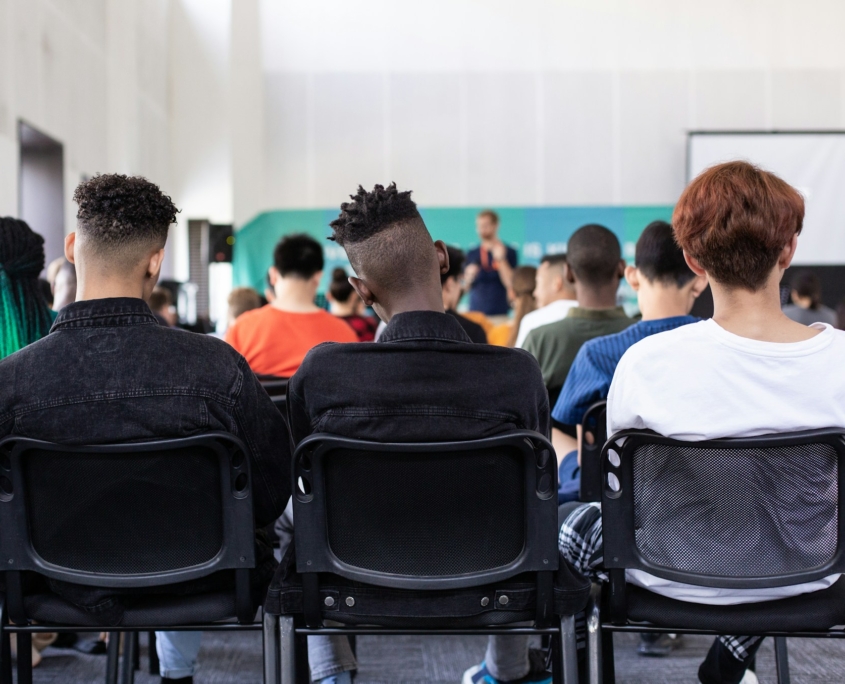Education for the People of Guyana
 In 2023, the United Nations Educational, Scientific and Cultural Organization (UNESCO) initiated a significant educational reform in Guyana. Funded by a System Capacity Grant from the Ministry of Education, this reform aims to enhance the skills of school and district leaders and to overhaul the mechanisms for allocating resources to schools and districts. This initiative seeks to provide further education for the people of Guyana.
In 2023, the United Nations Educational, Scientific and Cultural Organization (UNESCO) initiated a significant educational reform in Guyana. Funded by a System Capacity Grant from the Ministry of Education, this reform aims to enhance the skills of school and district leaders and to overhaul the mechanisms for allocating resources to schools and districts. This initiative seeks to provide further education for the people of Guyana.
The Evolution of Educational Media
The technical lead of UNESCO’s reform includes placing middle-tier actors in the space of education systems including classrooms. Alongside these actors, maybe having a television system can help provide education for the people of Guyana. In the 1950s, Boston University President Dr Daniel L. Marsh warned about the television craze turning young Americans into a nation of morons.
However, National Educational Television (NET) emerged just four years after his claim, challenging its uniqueness. Educational television aims to blend learning with entertainment and as of 2024, social media has surpassed television as the primary learning source for the youth. Popular children’s programs like Sesame Street and Bluey now offer educational content through YouTube channels, granting free access to young viewers.
Technology Gaps in Guyana
Unfortunately, many areas do not have access to the internet or a television license. The country of Guyana, whilst it does have access to both TV and the internet, is reportedly below the regional benchmark for example despite a significant increase from 13.8% in 2007 to 37.3% in 2019 the overall internet usage is minimal indicating a gap in technology advances between Guyana and other countries.
In many countries, a television license is not required unless one watches taxpayer-funded or local television, such as the BBC in the U.K. or Fox News in the USA, which is available for free viewing.
Guyana’s primary television network, Channel One, offers its audience news, talk shows and events at no cost. The nation also features a variety of channels available either through subscription or for free. While areas like Guyana’s capital, Georgetown, enjoy relatively better access to technology and current events, rural regions face significant challenges. These hardships are often a result of poverty exacerbated by climate change impacts on the natural environment and oil spills in Guyana’s waters.
Bridging Guyana’s Educational Gap
For regions impacted by poverty with limited access to technology, such as televisions or the internet, portable televisions equipped with VHS or DVD inputs can prove invaluable. Video-based learning enhances communication skills through visual and auditory stimulation and supports the acquisition of fundamental academic skills in reading, writing and mathematics.
The Common-Sense Census: Media Use by Tweens and Teens reports that television media educates and entertains 62% of children globally, with 58% of teenagers also acquiring many of their skills from television. Despite a minor decrease, a significant majority of young people worldwide still rely on television for learning. Therefore, equipping educational settings with a DVD or VHS player connected to an electric cable can provide access to numerous educational videos without the need for Wi-Fi or internet access.
The country of Guyana makes primary education mandatory with approximately 1000 students enrolled a year. The idea of using visual materials in education seems to be becoming a reality as in 2011, Guyana’s Ministry of Education set up an organisation called the Guyana Learning Channel which became widely available to Guyana families providing them with a mixture of physical and virtual education content.
The Learning Channel, unlike private schools in Guyana, offers its educational services for free, dedicating itself to enhancing resources through the recruitment of teachers and community outreach that involves students’ families. Since 2020, the Learning Channel has broadened its curriculum beyond basic math and literacy to include science, chemistry and language classes. During the COVID-19 pandemic, it offered online classes for students with Wi-Fi access and with support from the Guyana Ministry of Education, it provided radio and television programs for students without internet access.
Looking Forward
The education of young people is considered worldwide as a vital importance as it goes beyond teaching Maths and Literature. It also provides them with social interaction, promises them a higher-paid job in the future and keeps them away from destructive influences. Education for the people of Guyana is also receiving a focused push.
The ongoing efforts by the Guyana Ministry of Education, alongside partners like Learning Channel and UNESCO, shine as crucial steps toward securing a brighter future for Guyana’s youth. By investing in education, these initiatives not only aim to reduce poverty and criminal activity but also open up global opportunities for all children. As this collaboration continues, it holds the promise of crafting a safer, more prosperous world for the next generation.
– Phoebe Vaughan
Photo: Unsplash
